
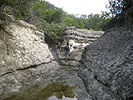 [+]
[+]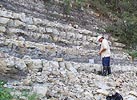
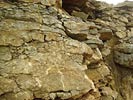
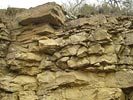
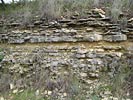
| Limestone is usually found in horizontal beds formed from lithified sediments consisting of mostly calcium carbonate. Limestone beds are often interrupted by shale layers. Limestone can vary from being soft and brittle to very hard and dense depending on the amount of clay or sand. | ||
Fort Worth Limestone |
Edwards Limestone [+]
[+] |
Fort Worth Limestone |
Rock Hill Ls. |
Jacksboro Ls. |
Jacksboro Ls. |
| Chalk is composed mostly of the calcareous skeletons of various marine micro-organisms. The Austin Chalk below may not be a pure chalk. | ||
Austin chalk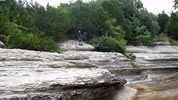 |
Austin chalk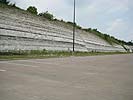 |
Austin chalk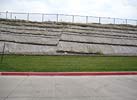 |
| Shale is a general term for clay or silt deposits that are laminated (thin layers) and fissile (split easily). Shale that has been exposed to weathering has a melted appearance. Shale is often interrupted with beds of limestone. | ||
Grayson shale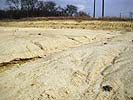 |
Eagle Ford shale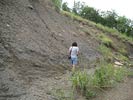 |
|
Placid shale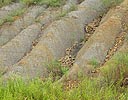 [+]
[+] |
Mingus Shale (bottom)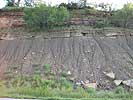 [+]
[+] |
Winchell Ls. (shale)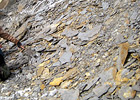 |
| Mudstone / Claystone is a general term for consolidated mud or clay that is NOT laminated. It maybe lithified or not. | ||
Pawpaw Formation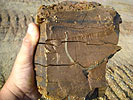 |
Pawpaw Formation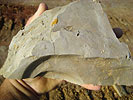 |
Pawpaw Formation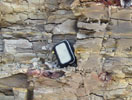 |
Weno Formation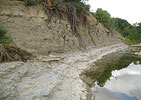 |
||
| Sandstone is simply compacted and compressed sand that was deposited off or near shorelines as sandbars (shoals) and along shorelines as beaches and sand dunes further inland. The massive fine-grained sandstone layers of "Pennsylvanian" age in north Texas are sourced from the erosion of ancient mountains in north Texas. | ||
Paluxy Formation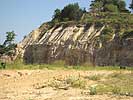 |
Paluxy Formation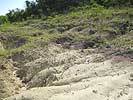 |
Woodbine Formation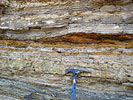 |
Graham Formation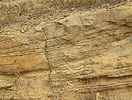 [+]
[+] |
Brazos River Fm.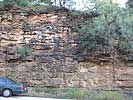 [+]
[+] |
??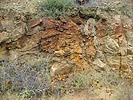 |
Archer City Formation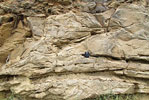 Montague Co., TX |
Archer City Formation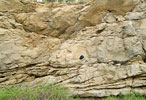 Montague Co., TX |
Archer City Formation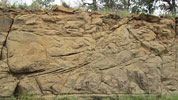 Montague Co., TX |
| Marl is rock that contains a large variable amounts of clay or lime mud. | ||
Walnut Clay Formation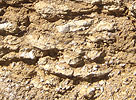 |
Walnut Clay Formation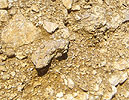 |
|
Duck Creek Formation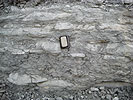 |
Duck Creek Formation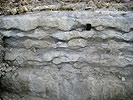 |
Duck Creek Formation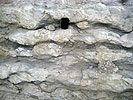 |
| Conglomerate (or alluvium) is rocks and sands that have been eroded and compacted in a non-marine setting such as river systems. | |
Pleistocene age alluvium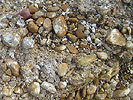 Tarrant Co., TX |
Lower Cretaceous age alluvium?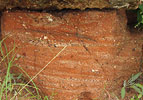 [+]
[+]Montague Co., TX |
| Miscellaneous or interesting strata. | ||
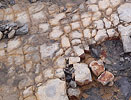 Tarrant Co., TX |
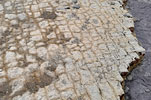 Tarrant Co., TX |
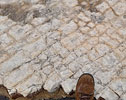 Tarrant Co., TX |